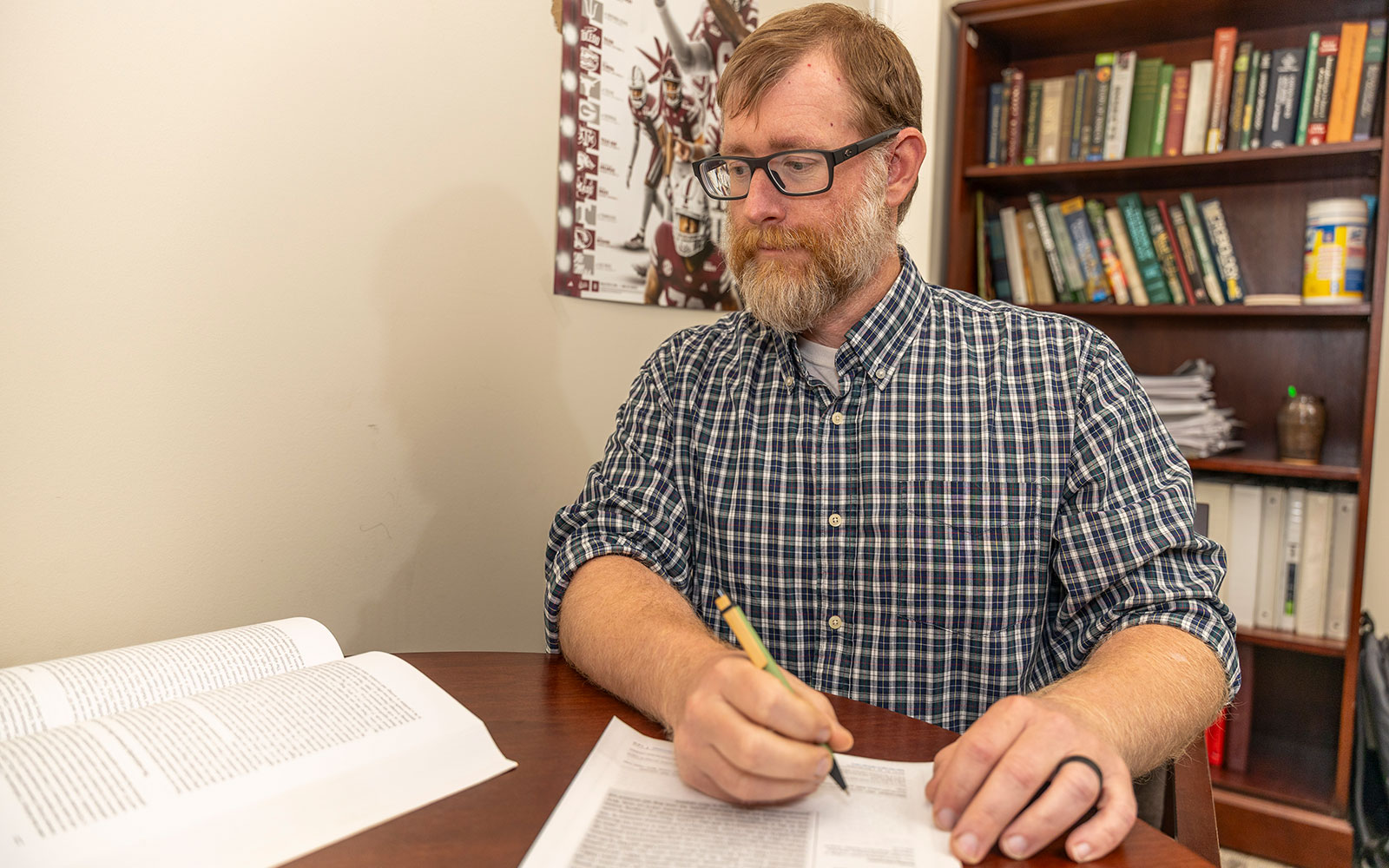News
Fleming's Paper Sheds Light on Pesticide Runoff and Water Quality

Even though pesticides are mainstays in modern agriculture, unresolved questions about their effects on the nation's water resources persist. Fortunately for farmers and the environment, Dan Fleming is finding answers.
Fleming, a postdoctoral associate with the Water Resources Research Institute and an entomology lecturer at Mississippi State University, analyzed pesticide runoff from North American agriculture fields in a research paper recently published in the Journal of Environmental Quality.
"The institute is a very critical tool for the state of Mississippi, and our research has a lot of potential to benefit growers and help mitigate agricultural runoff issues," said Fleming. "We're in a good position to make farming more environmentally sustainable and improve farmer livelihoods. I like working here for that reason—that we can approach issues from both sides."
Fleming's paper coalesced pesticide runoff data from North America to gain a better understanding of how conservation agricultural practices, namely conservation tillage affect runoff. The results were surprising and went against the common paradigm.
"It wasn't a surprise that using conservation tillage practices reduced runoff," he said. "The surprise was that going from conventional tillage to conservation tillage really didn't reduce the concentration of pesticide leaving the field, negating the total benefits. That goes against the paradigm."
Fleming found that pesticide concentrations within water and sediment runoff from conservation tillage were much higher than levels associated with conventional tillage. The disparity not only raises more questions for scientists but also reveals a lingering gap in pesticide research.
"We need new and updated information on some of the more commonly used pesticides today, because there's very little information on fungicides and insecticides," Fleming said. "And if the data does exist, it hasn't been published and made accessible for the public."
"Fleming's interest in agriculture began in Bear Creek, Alabama, where his family farmed corn and soybeans and raised cattle. He decided to study insects at Mississippi State after landing a job in the Entomology Department. At the time, advancements such as boll weevil eradication and pest-resistant crops made entomology an exciting frontier for the budding scientist.
After graduating from MSU, Fleming spent a year at the U.S. Department of Agriculture and worked briefly on his family's farm before returning to MSU to pursue a doctoral degree. He then focused on commercial product development for several years.
At the institute, Fleming plans to build on his research into pesticides and strategies to reduce agricultural runoff and further study conservation agricultural practices.
"I did a small trial this spring with herbicides in one of our test fields, and am currently assessing the data from that. We're helping generate more interest in what happens to pesticides after farmers apply them, as well as providing data to help regulators make better data-driven, practical and effective decisions."
The Water Resources Research Institute at Mississippi State University is a leader in addressing critical water and land use challenges. Collaborating with leading water resources officials, the institute develops innovative research solutions that benefit Mississippi, the region and the nation. Learn more about the institute at www.wrri.msstate.edu.
View More News